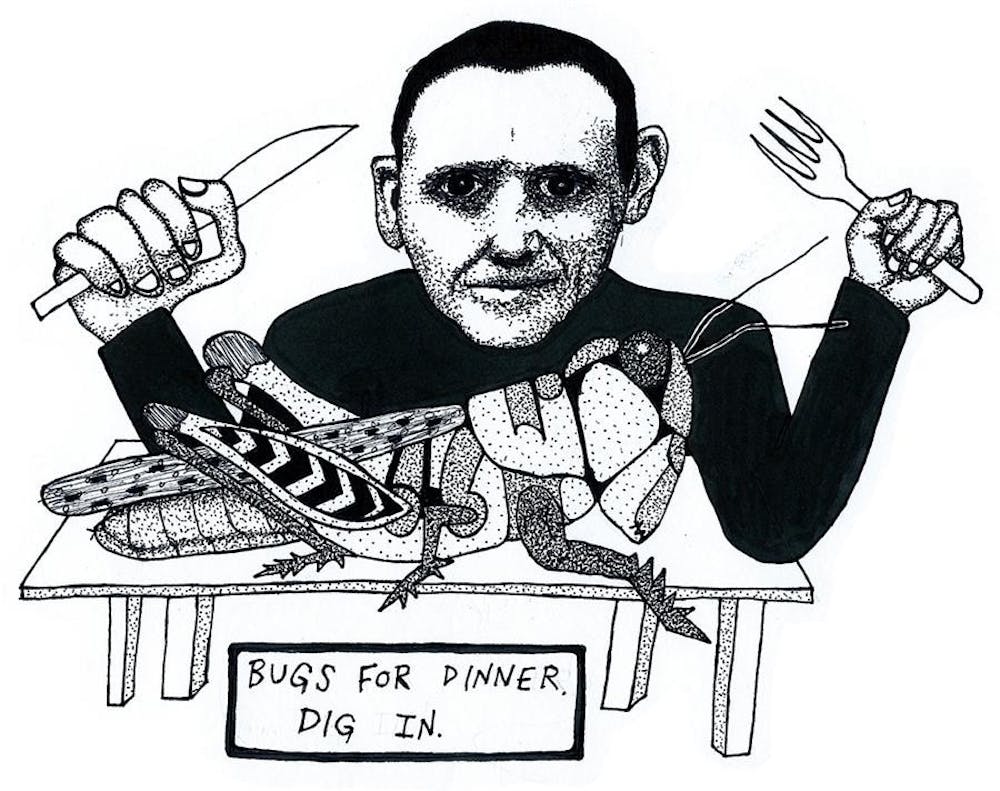FROM THE ILLUSTRATORS' DESK: Featuring an illustration by Zack Worcel
From The Illustrators' desk gives us a glimpse of what's on our illustrators' minds, with written accompaniment by Opinion columnists. This week, illustrator Zack Worcel tackles a shocking (at least according to some) food advisory from the United Nations.
A new report by the Food and Agriculture Organization, the agricultural division of the United Nations, says that we should turn to farming “minilivestock” to sustainably meet growing global demands for food as the earth’s human population continues to grow.
Although we don’t think of insects as food, 2 billion people around the world already regularly consume them. Populations in Asia, South America, Africa, and parts of Australia eat bugs with pleasure. First-world, western countries, it seems, are the only ones to turn up our noses at the idea of creepy-crawlies as a legitimate food source.
So, to convince you (and ourselves) to give bugs a chance, here are some pros and cons of turning to insects as food.
PROS:
-Insects emit far fewer greenhouse gases when being raised than traditional livestock.
-Most species of edible insects can survive on food that’s traditionally considered “waste,” like animal blood, meaning we wouldn’t have to grow food especially to feed them.
-Insects are very easy to farm, and can be raised by people in urban areas for extra income.
-Bugs are higher in protein and nutrients, proportionally, than traditional livestock.
CONS:
-They’re icky.
-So icky.
-Really. That's all we can think of.
Maybe we should take a cue from Hannibal Lecter and try out a new form of meat. After all, if we’re not going to eat our fellow humans, we should probably find something to feed our ever-growing population.
Caption and writing by Kelly Fritz
From the illustrators' desk: Would YOU eat bugs?

Get stories like this in your inbox
Subscribe





